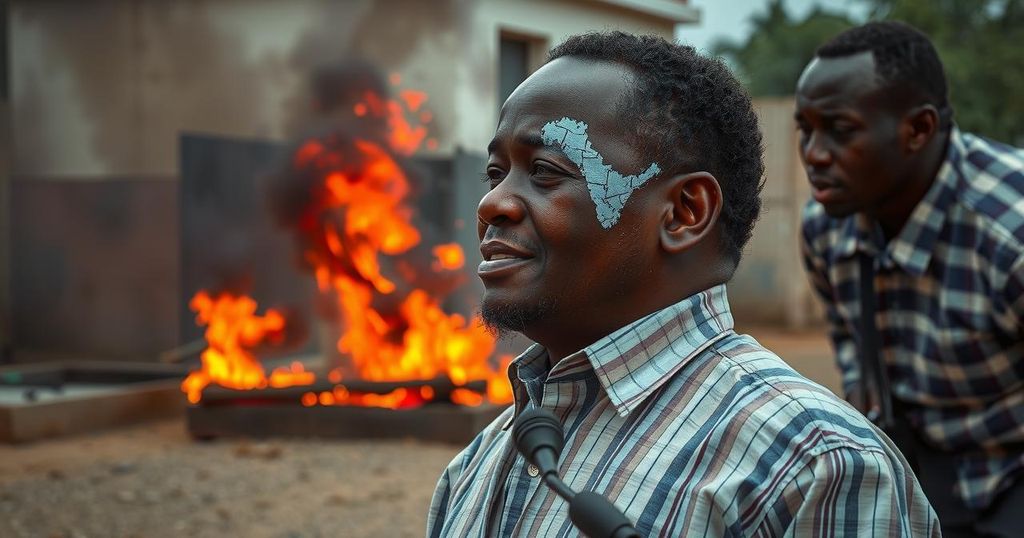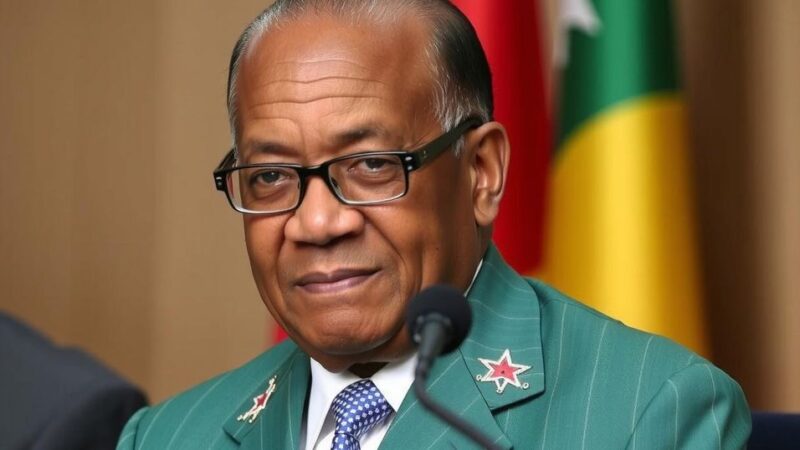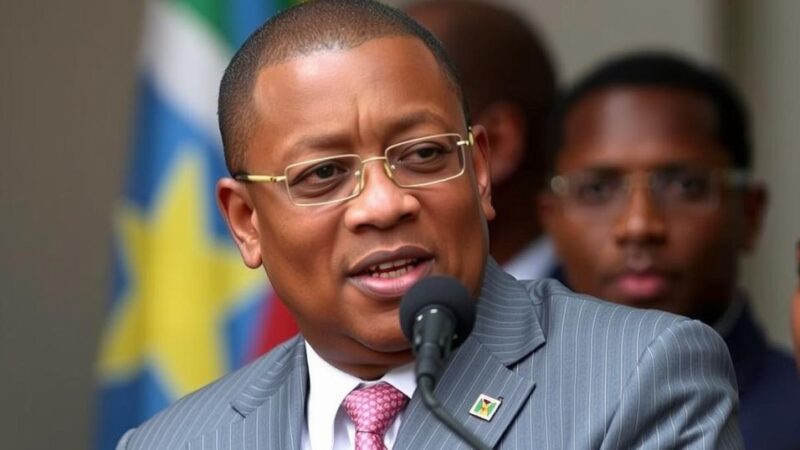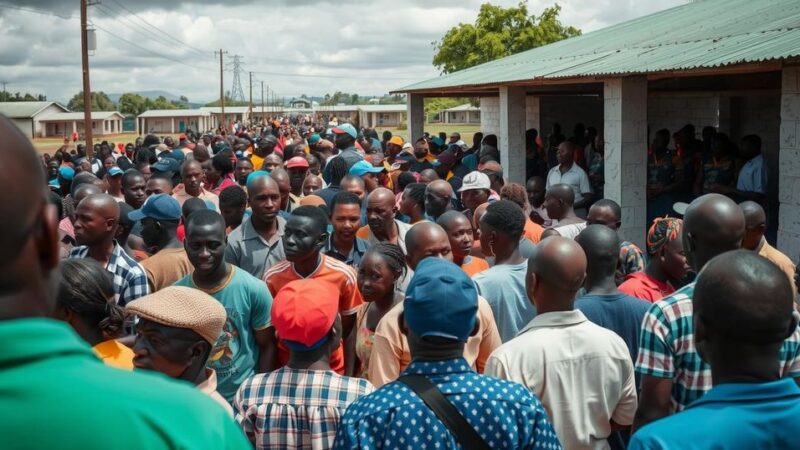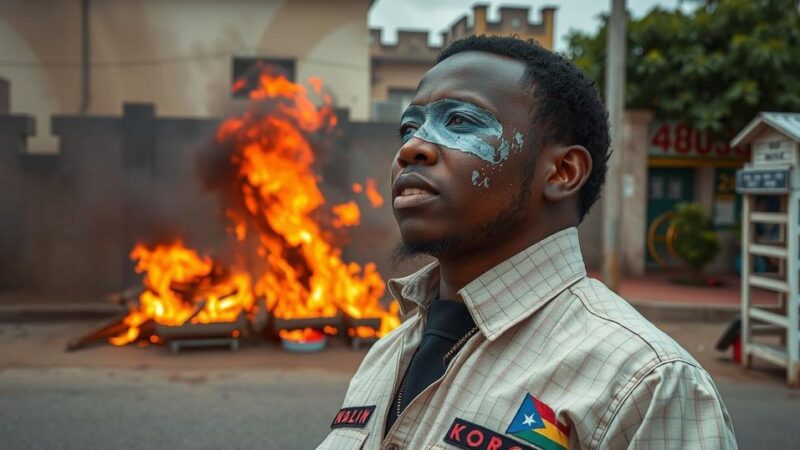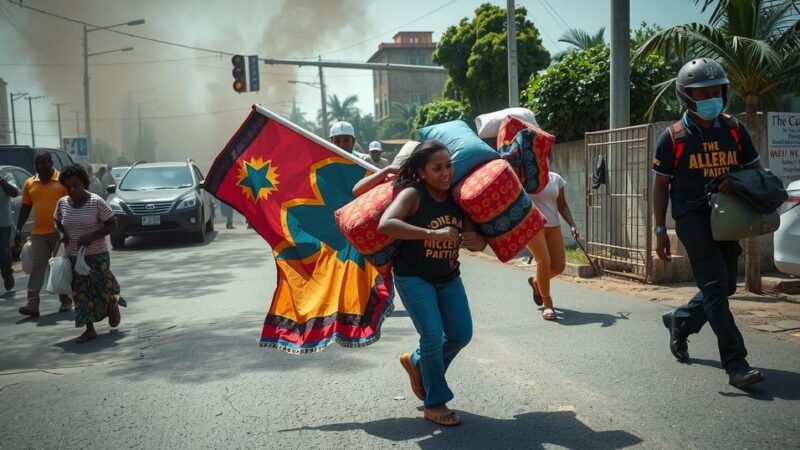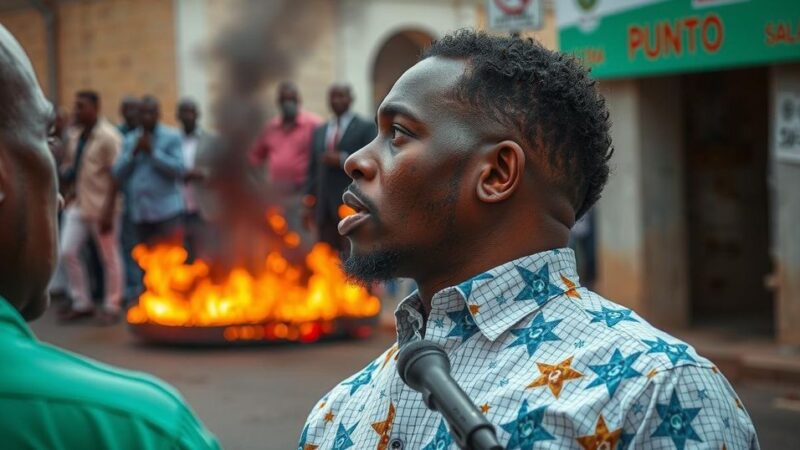Violence in Mozambique following the ruling Frelimo party’s election victory has resulted in at least 21 deaths, including two police officers. Following the court’s confirmation of the election results, the unrest spread nationwide, prompting over 236 reported acts of violence. Opposition leader Venancio Mondlane claims the election was fraudulent, calling for continued protests. Routine life has been disrupted as many residents remain indoors due to safety concerns during the holiday season.
Recent violence in Mozambique has resulted in the deaths of at least 21 individuals, including two police officers, over a 24-hour period following unrest that erupted after the ruling Frelimo party’s election victory was confirmed. The country’s highest court ratified the October 9 election results on Monday, leading to a surge in violence, including 236 acts reported nationwide, and leaving over 25 people injured, with a significant number of those being law enforcement personnel. Armed groups have targeted police stations and public infrastructure, leading to mass arrests exceeding 70 individuals.
In Maputo, the capital, clashes have erupted between demonstrators and police, where protesters have resorted to throwing objects and igniting fires, resulting in significant disruption in localized areas. Key roads have been obstructed by barricades, and the atmosphere is characterized by a palpable fear and unease among the populace, compelling most residents to stay indoors during what is typically a festive season. Violence has also surfaced in northern provinces known for strong opposition support, further escalating concerns.
Despite the ruling party’s stronghold, opposition leader Venancio Mondlane, currently in exile, has claimed the election was marred by fraud. His assertions call for a continued struggle for electoral legitimacy, as the Frelimo party, which has been in power since 1975, faces unprecedented levels of post-election animosity. The tensions have prompted a public discourse on electoral integrity, with Mondlane insisting on the establishment of a People’s Constitutional Court to affirm his legitimacy as the rightful president.
Chapo’s governance is anticipated to commence in mid-January, although he has acknowledged the electoral discord and pledged to engage with diverse parties moving forward. This challenging scenario highlights the deep divisions within Mozambican society and the critical demand for a transparent political process that honors the voices of all citizens.
Mozambique, a nation in Southern Africa, has a long history of political turmoil, particularly surrounding election periods. Since achieving independence in 1975, the Frelimo party has maintained political dominance, but recent elections have revealed growing dissent, especially among opposition factions. Political unrest is often exacerbated by alleged electoral malpractice, leading to significant civil disorder and violence. The current situation reflects widespread public frustration over the electoral process and governance, necessitating a reevaluation of the political landscape and adherence to democratic principles.
The deadly post-election unrest in Mozambique serves as a stark reminder of the fragile state of democracy within the nation. Following the confirmation of the ruling Frelimo party’s electoral victory, widespread violence has erupted, leading to significant casualties and injuries. As opposition leader Venancio Mondlane continues to contest the legitimacy of the election results, it remains imperative for the incoming administration to address these grievances and promote reconciliation. Ensuring electoral integrity and fostering inclusive governance are essential steps toward stabilizing the nation’s political climate and restoring public trust.
Original Source: www.geo.tv

